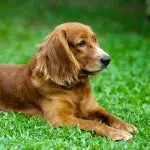Bichon frise care and grooming
Bichon Frise Care and Grooming
Bichon Frise are a very sociable dog from the time that they are puppies on through adulthood. Bichon Frises have an easy, happy disposition. A Bichon Frisé (French, literally meaning Curly lap dog; often spelled Bichon Frise in English) is a small breed of dog.
The Bichon Frise was developed in the Mediterranean area, when a Barbet (a large water spaniel breed) was crossed with small white lapdogs. The Bichon Frise of today has its lineage in the Bichon Tenerife breed line, which found its way to the Mediterranean area, onto the Canary Islands or rather, “the Island of Tenerife
. In the 1980s, the Bichon Frise was part of the “Yuppie Puppies” choice of the majority population, and everyone just HAD to have one. Bichon Frises make an excellent addition to the family. Bichon Frise are affectionate, cuddly and just plain happy to see people.
The disposition of the Bichon Frise is sweet, perky, bouncy, active, and very playful with sporadic bursts of energy that leads them into many unknown adventures–usually beyond the fenced in yard or when they get loose from the leash, even though they are considered to be gentle creatures. Bichon Frises can be hard to house train; crate training may be a successful technique. Bichon Frises can conform to apartment life fairly easily. Bichon Frise also are very intelligent and quick learners.
Bichon Frise, as with many sociable breeds, are not suited to being left alone all day. Bichon Frises have a life span of 12-13 years and have litters of 4-5 pups. An independent dog, the Bichon Frise bond well with adults and children and is also very highly intelligent, affectionate, charming, and self-assured. Serious dog lovers who own, or want to own a Bichon Frise would rather invest their valuable Internet time on a website that truly UNDERSTANDS this amazing breed.
Training
Training must be gentle and firm, with no harsh corrections or scolding. Training the Bichon works well with food treats along with the leash and collar. A crate is usually the best method of training. The puppy should come to see his/her crate as his personal space so avoid using it as discipline for bad behavior to maximize house training potential.
Roughhousing is definitely out with this guy, and play training is in. This breed requires gentle and firm training, as they are so gentle and sensitive that any harsh training or negative corrections will have an opposite effect on the puppy or adult dog. But all trainers/owners will eventually need a collar and leash to begin the training-the many types available will depend on the person doing the training, as each one is a matter of personal preference and what the dog needs.
Some of the training collar tools that are acceptable for the Bichon training, as chain or nylon chokers will matt and tangle in their hair, are the buckle collars, leather-training collars, or even the reversed pinch collars. The head collar is becoming very popular as a training tool for most dogs in training classes. Positive reinforcement and gentle training are the choice training of the day, with kindness, persistence, and patience. As far as training is concerned, this breed often proves to be hard to housebreak, but likes to learn. The Bichon does not require aggressive training, and likes challenges. These dogs need training and exercise at the minimum one walk a day.
Grooming
Grooming requirements are based on coat type and the size of the dog. Grooming is recommended on a daily basis to avoid matting. Professional grooming is recommended every 4 weeks. They are a non-shedding breed that requires daily grooming. They require regular grooming, which can be expensive and/or time-consuming.
Because Bichons are so susceptible to skin problems and allergies, good grooming practices are very important. Like all dogs that require frequent grooming, Bichons should be accustomed to grooming from a young age and care should be taken to keep grooming pleasurable. Anyone considering a Bichon should carefully weigh the amount of time available for grooming, for the coat needs lots of attention.
But good grooming is required once shedding begins, as the undercoat needs to be removed once the weather begins to warm up or excessive shedding will leave piles of hair throughout the home. High on the playfulness range, along with friendliness toward strangers, watchdog ability, and grooming requirements-anyone who purchases the Bichon will be a powder-puff challenge, to say the least.
To keep the Bichons soft white curly coat well cared for takes daily grooming and as the coat is white and non shedding, it also needs regular bathing and trimming. There are two popular Bichon Frise grooming styles: a short, poodle-like coat or a long, puffy coat for a more rounded appearance. For anyone wanting to learn to do the grooming on their own dogs, be prepared to make many mistakes along the way.
Conclusion
With proper attention, the Bichon Frise will develop into a wonderful companion animal. Bichon Frise are a very sociable dog from the time that they are puppies on through adulthood. So instead of wasting hours of your time scouring the Internet for specific info about the Bichon Frise, it’s all here in one place. You can find out all you need to know about the Bichon Frise. With thousands of Bichon Frise puppies for sale and hundreds of Bichon Frise dog breeders, you’re sure to find the perfect Bichon Frise puppy.


